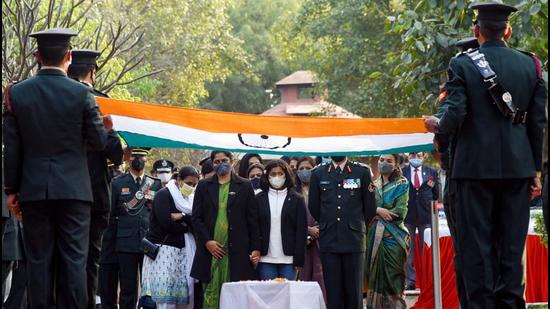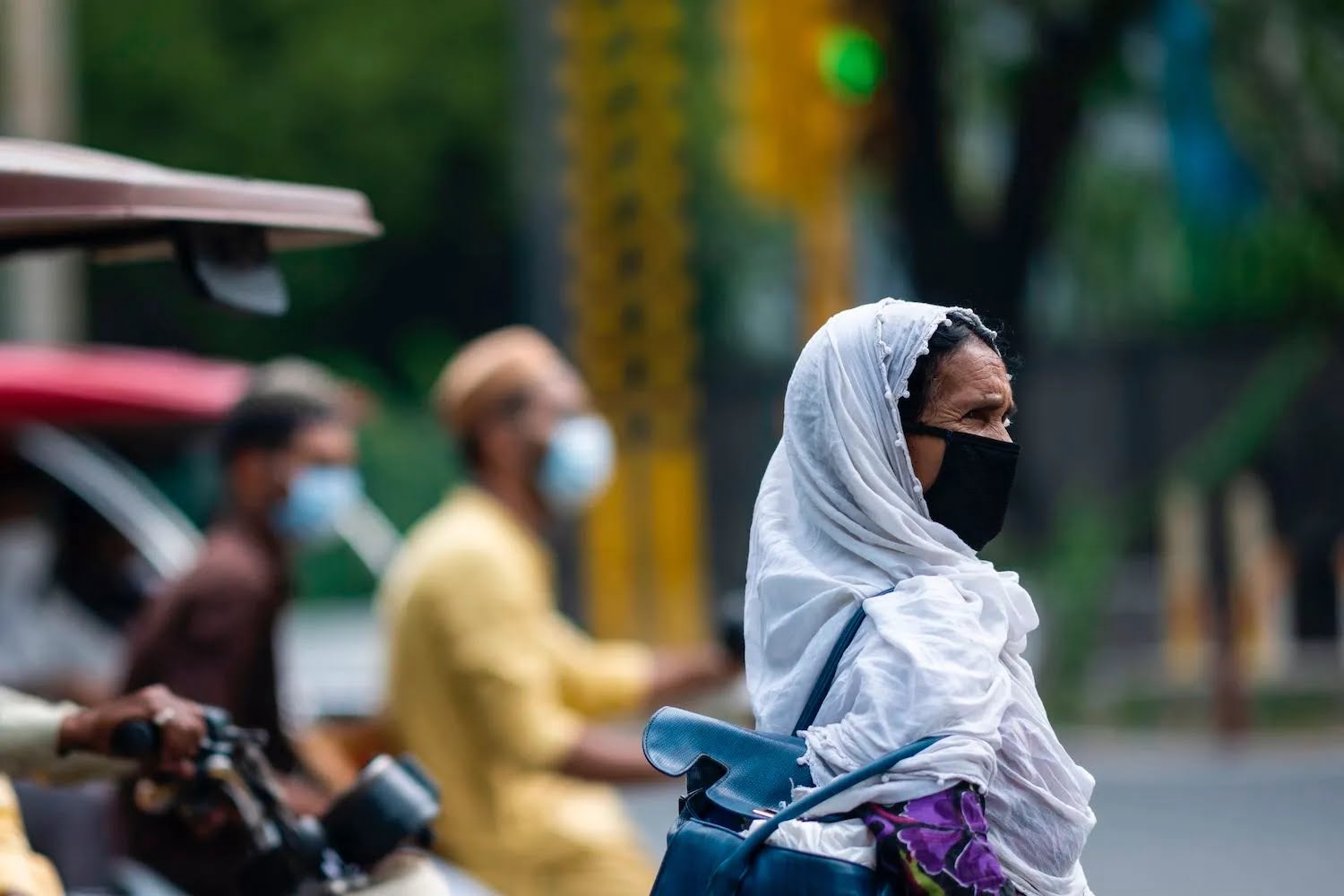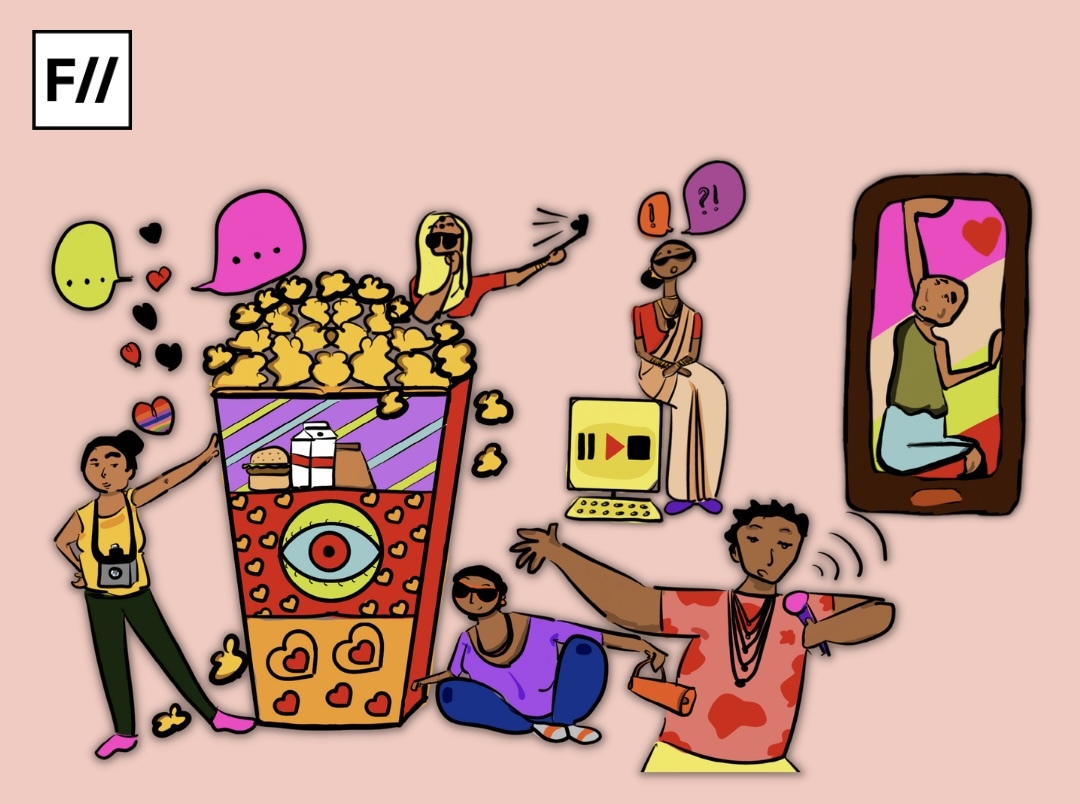While 55 percent of Indians said that men and women make equally good political leaders, an overwhelming majority [80 percent] agreed that in times of job scarcity, men must be given preference over women, affirmed a recent study published by Pew Research Center.
The study, titled ‘How Indians View Gender Roles in Families and Society’ surveyed 29,999 adults in-person across religious and age [above 18] demographics throughout India. The survey that was published on Wednesday, 2 March was conducted from November 2019 to March 2020 before the COVID-19 pandemic hit.
According to the report, there is an underlying “son preference” in Indians due to different historical, social, economic, and religious factors. Additionally, it noted that Indian women “are not much more likely than Indian men to express egalitarian views on son preference and gender roles.” The same holds true for young Indian adults in comparison to their elders.
Gender Roles In Domestic Setting
Indians expressed more egalitarian views in response to gender roles at home. 62 percent agreed that both men and women are responsible for taking care of children. However, a third of Indians complied with traditional gender rules, stating that women are primarily responsible for child care.
A third of Indians complied with traditional gender rules, stating that women are primarily responsible for child care.
The survey found that Indian women were nominally behind men to say that they “completely agree” with the idea that “wives should always obey their husbands (61 percent vs 67 percent).”
The survey found that Indian women were nominally behind men to say that they “completely agree” with the idea that “wives should always obey their husbands (61 percent vs 67 percent).”
Sons Or Daughters?
Around 63 percent of Indian adults believed that sons – not daughters – are primarily responsible for parents’ last rites. This practice has recently been challenged by actress Mandira Bedi (as she performed the last rites of her husband) and the daughter of former Chief of Defense Staff who carried out the last rites of their husband and father respectively.

However, about 64 percent Indians say that both sons and daughters have equal rights to inheritance from parents and 58 percent believe that they have the responsibility of caregiving towards parents as they age. But while four out of 10 survey respondents say that sons are primarily obligated to care for their parents, only two percent say the same about daughters.
The survey noted that despite the illegality of sex-selective abortions, son preference along with the widescale availability of ultrasound facilities that help determine the gender-assigned at birth of children in the recent decade have contributed to female feticide. Four in 10 Indians believe that it is either “completely acceptable” or “somewhat acceptable” to “get a checkup using modern methods to balance the number of girls and boys in the family” – a comparatively softer substitute for sex-selective abortions.
Similarly, 42 percent of Indians say that balancing the number of girls and boys in a family using modern methods is completely unacceptable, while one in ten see it as “somewhat” unacceptable.
Also read: A Look At The Changing Discourse Around Unemployment, ‘Superfluous Labour’ & Capitalist Exploitation
The Economy Of Gender Roles
A marginal majority of Indians (54 percent) are of the view that both men and women are responsible for earning money; 43 percent believe that it is majorly the responsibility of men. One in five Indians say that men should be the primary decision maker when it comes to family expenses. College graduates are more likely to say that men and women should share family responsibilities in comparison to other Indians. This advances the case for education.
According to the study, eight in 10 Indians shared an egalitarian vision of women’s place in society, saying that it is imperative for women to have the same rights as men. This, however, was paralleled by the acceptance of traditional economic roles. Around 80 percent Indians – 56 percent who completely agree – are of the view that men should have more rights to a job than women. The majority of both men and women shared this view. This is divulged at a time when several studies have indicated that a majority of women ended up losing their jobs during the pandemic than men.

Around 80 percent Indians – 56 percent who completely agree – are of the view that men should have more rights to a job than women. The majority of both men and women shared this view. This is divulged at a time when several studies have indicated that a majority of women ended up losing their jobs during the pandemic than men.
Women Are More Discriminated Than Religious Minorities?
Almost a quarter of Indians say that women in their country face a lot of discrimination. This is narrowly higher than the shares who believe some religious groups or people from lower caste face a lot of discrimination.
More Indian adults perceive that “violence against women is a major national issue.” Indians who believe that violence against women is a “big problem” are greater than those who think communal violence (65 percent) or crime and corruption (76 percent) are bigger problems.
The survey noted that roughly half of Indians say that “teaching boys to respect women” is more important than “teaching girls to behave appropriately.” A quarter take a mixed approach to this.
Also read: Women Worst Affected By Unemployment During COVID-19
The study also revealed that Indians are less likely to place high importance on the equality of rights between men and women than people in North America, Western Europe, and Latin America. Even after majorly aligning with global public opinion on equal rights for men and women, Indians foster a more conservative attitude than people in most of the other countries surveyed in the context of “gender dynamics in the home and the economy.”
Featured image source: Foreign Policy





A man needs a job to feed his family. Women spend their money only on themselves. When women are the sole earners, they endlessly taunt her husbands. In two income families, men bear the monetary burden. If you want equality, contribute equally.
Wow. ‘Contribute equally’
Imagine having the audacity to say that to home-makers, and then to home-makers who are also a part of the formal economy. Be thankful that as yet housework is not remunerated for, because folk understanding of work loves naturalising labour for one sex. It is perhaps this very understanding that makes you say ‘contribute equally’ with such authority. In two income families, ‘men bear the monetary burden’, well you love to be the providers! Let me remind you here, in two, or one or multiple income families, a woman cannot escape the responsibilities she ‘must’ cater to, even if she is an earning member. Because her labour has been naturalised. This is the gendered nature of capital, a man brings it and he’s the ‘provider’, a woman brings it and it’s ‘extra income’. You created this system. And you sustain it. Just think it through the next time you say contribute equally, Good Man. Best.
More than twice as many men than women continue to commit suicide in India because a jobless man is a worthless loser but a jobless woman is a homemaker.
https://www.google.com/amp/s/www.tribuneindia.com/news/archive/nation/-one-indian-commits-suicide-every-4-minutes-men-more-vulnerable-609058
https://www.statista.com/statistics/665336/india-suicides-by-gender/